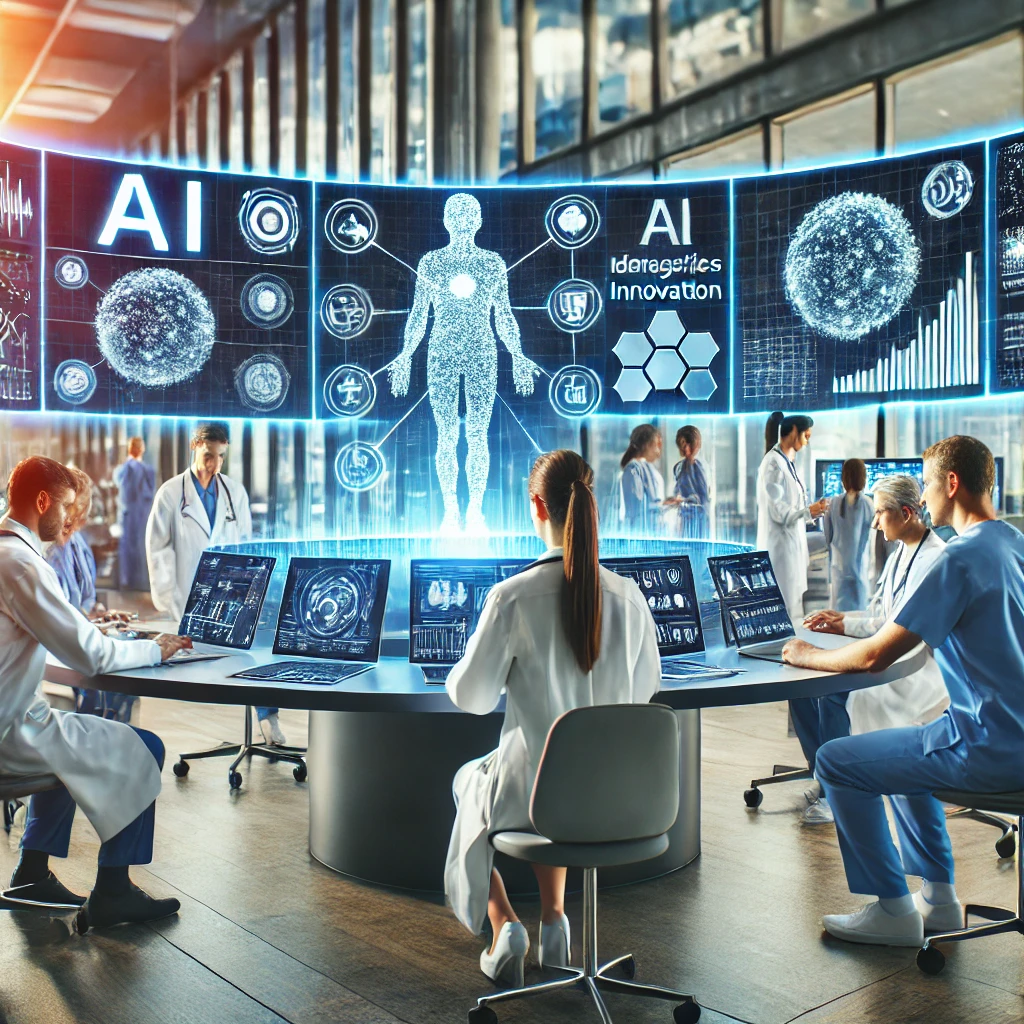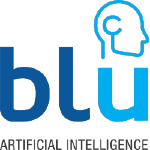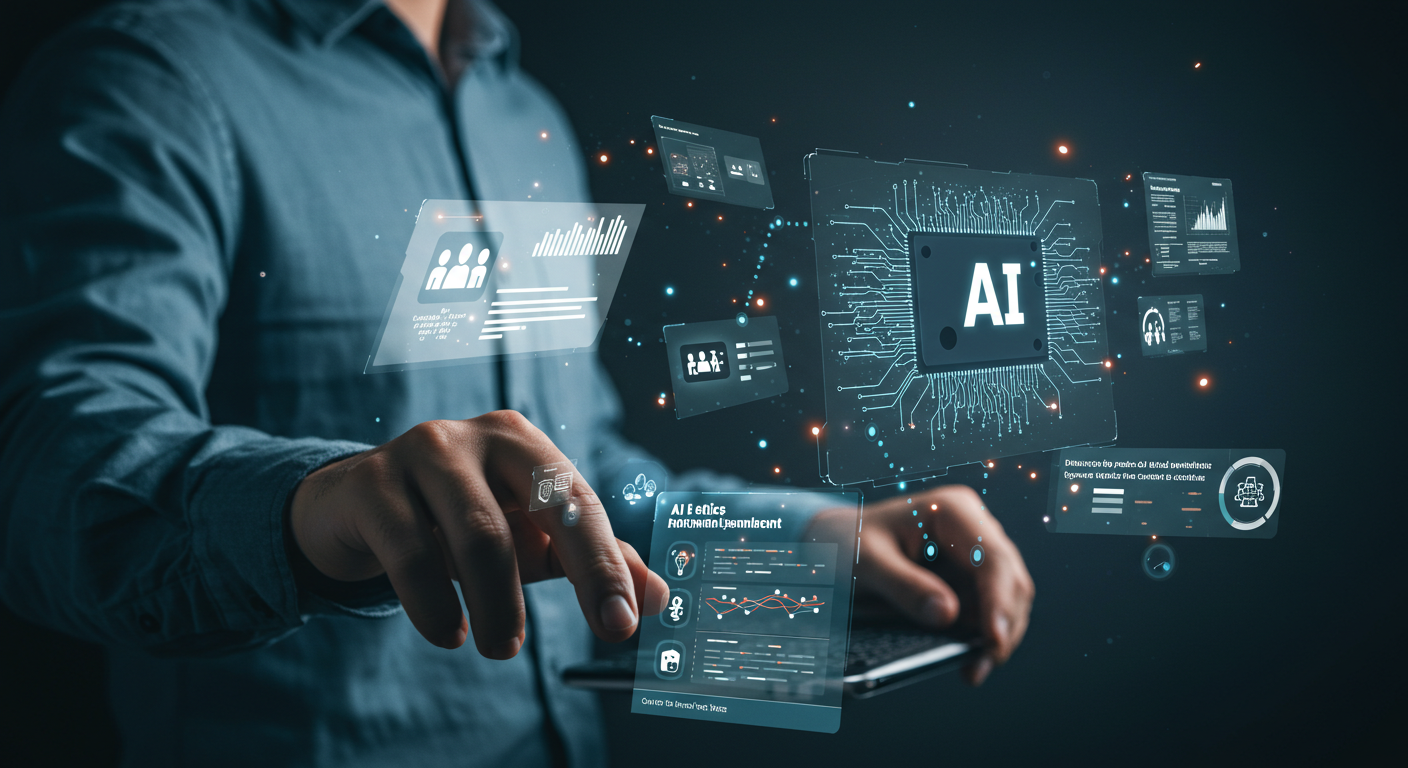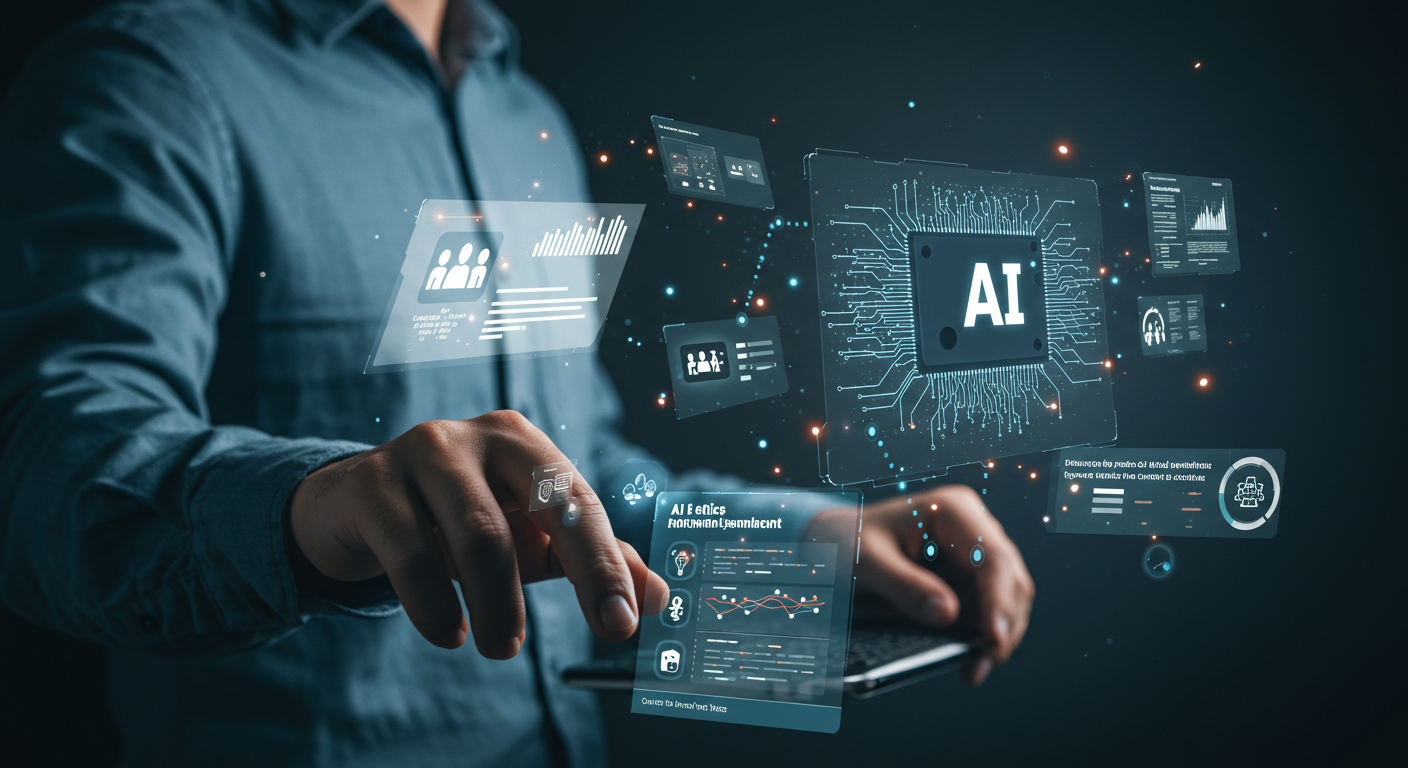
AI-Driven Innovation in Healthcare: Latest Trends and Impacts
The healthcare industry is undergoing a significant transformation, driven in [...]
The healthcare industry is undergoing a significant transformation, driven in large part by advancements in artificial intelligence (AI). From enhancing patient care to streamlining operations, AI is enabling healthcare providers to achieve unprecedented levels of efficiency and effectiveness. In this article, we explore the latest trends in AI-driven healthcare innovation, examining how AI is reshaping the industry and what this means for the future of healthcare.
The Role of AI in Healthcare
AI technologies are being integrated into various aspects of healthcare, offering solutions that range from predictive analytics to personalized treatment plans. The ability of AI to analyze vast amounts of data quickly and accurately is revolutionizing how healthcare providers diagnose, treat, and manage patient care. As AI continues to evolve, its impact on healthcare is only expected to grow.
Key Trends in AI-Driven Healthcare Innovation
- AI in Diagnostics: One of the most promising applications of AI in healthcare is in diagnostics. AI algorithms are being used to analyze medical images, identify patterns, and detect diseases with a high degree of accuracy. For example, AI tools are helping radiologists identify early signs of conditions such as cancer, potentially improving patient outcomes through earlier detection.
- Personalized Medicine: AI is enabling the development of personalized treatment plans based on individual patient data, such as genetic information, medical history, and lifestyle factors. By analyzing this data, AI can help healthcare providers tailor treatments to the specific needs of each patient, leading to more effective care and better outcomes.
- Predictive Analytics for Preventive Care: AI-driven predictive analytics are being used to identify patients at risk of developing chronic conditions, such as diabetes or heart disease. By analyzing patterns in patient data, AI can predict potential health issues before they become serious, allowing for early intervention and preventive care.
- AI in Drug Discovery: AI is accelerating the drug discovery process by analyzing large datasets to identify potential drug candidates and predict their effectiveness. This has the potential to significantly reduce the time and cost associated with bringing new drugs to market, ultimately benefiting patients by providing faster access to new treatments.
- Operational Efficiency: Beyond patient care, AI is also being used to streamline healthcare operations. AI-driven systems can optimize scheduling, manage supply chains, and improve resource allocation, leading to more efficient and cost-effective healthcare delivery.
Impacts of AI on the Healthcare Industry
- Improved Patient Outcomes: The use of AI in diagnostics, personalized medicine, and preventive care is leading to earlier detection, more accurate diagnoses, and more effective treatments, all of which contribute to improved patient outcomes.
- Cost Reduction: By automating routine tasks, optimizing operations, and accelerating drug discovery, AI is helping to reduce the overall cost of healthcare. This has the potential to make healthcare more accessible and affordable for patients.
- Enhanced Decision-Making: AI provides healthcare providers with data-driven insights that support better decision-making. This includes everything from choosing the right treatment plan to managing patient care more effectively.
- Increased Access to Care: AI-driven telemedicine and remote monitoring solutions are expanding access to care, particularly for patients in underserved or remote areas. By enabling healthcare providers to reach more patients, AI is helping to bridge gaps in healthcare access.
Challenges and Considerations
- Data Privacy and Security: The use of AI in healthcare involves handling large amounts of sensitive patient data. Ensuring the privacy and security of this data is paramount, and organizations must comply with regulations such as HIPAA and GDPR.
- Ethical Considerations: The deployment of AI in healthcare raises ethical questions, such as ensuring fairness, avoiding bias in AI algorithms, and maintaining transparency in AI-driven decision-making processes.
- Integration with Human Expertise: While AI offers significant benefits, it is essential that AI-driven insights are integrated with the expertise of healthcare professionals. AI should complement, not replace, human judgment in patient care.
Case Studies: AI-Driven Innovation in Healthcare
- AI in Radiology: A hospital implemented an AI-driven radiology tool that assists radiologists in identifying potential signs of lung cancer in CT scans. The tool improved diagnostic accuracy and reduced the time needed to analyze scans, leading to faster treatment for patients.
- AI-Powered Telemedicine: A healthcare provider launched an AI-powered telemedicine platform that allows patients to receive medical consultations remotely. The platform uses AI to triage patients and provide initial assessments, improving access to care and reducing wait times.
AI-driven innovation is transforming healthcare, offering new opportunities to improve patient outcomes, reduce costs, and enhance the overall efficiency of healthcare delivery. As AI continues to evolve, its impact on the healthcare industry will only grow, paving the way for a future where personalized, data-driven care is the norm. At Blu, we’re committed to helping healthcare organizations leverage AI to drive innovation and improve patient care. Contact us today to learn how AI can benefit your healthcare initiatives.
Share this article
Follow us
A quick overview of the topics covered in this article.
Latest articles
April 29, 2025
April 22, 2025
April 9, 2025



